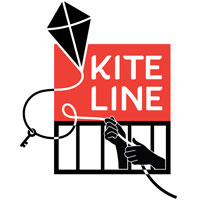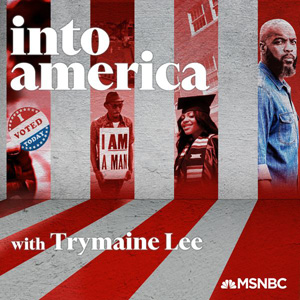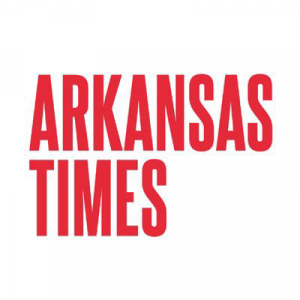“[A]s the invaluable Mississippi Free Press tells us, the Lost Cause is still making mischief.”
– Esquire Magazine




























































































































































MFP Impact, Awards and Media Coverage – 2020
Dec. 23-25, 2020
Shadowproof’s Beyond Prisons podcast, featuring an earlier interview with University of Mississippi professor Garrett Felber, suggested reading Christian Middleton’s breaking story about Felber’s sudden termination. The Kiteline podcast also discussed his t ermination.
Dec. 22, 2020
A Washington Post column by University of North Carolina at Chapel Hill history professor William Sturkey followed up on Christian Middleton’s breaking and contextual reporting about University of Mississippi history professor Garrett Felber’s termination.
Following the national outcry after Christian’s reporting, the American Historical Association issued a letter to the University of Mississippi expressing concern “about the possibility that Professor Felber’s activism relating to racism and incarceration might have affected a decision on his employment status.” (See PDF of letter).
The United Campus Workers of Mississippi released a letter citing the journalism of both Christian Middleton and Ashton Pittman on what it called the “clear pattern of administrative abuses of power at the University of Mississippi.”
On the same day, the International Ombudsman Association issued a statement in support of University of Mississippi ombudsman Paul Caffera, who the university is investigating in an apparent attempt to unmask whistleblowers who received faculty and donor emails through public-records requests. The whistleblowers shared the emails with the Mississippi Free Press, which formed the basis for Ashton Pittman’s still-growing series about sexist, racist and homophobic emails between a journalism dean and donors, as well as a coverup within the journalism school of details around a 2018 controversy that led to a name-change for the school. The Mississippi Free Press is the only media outlet in Mississippi to have reported on the UM emails and the responses of the university and the journalism school.A change.org petition started circulating calling for the reinstatement of University of Mississippi ombudsman Paul Caffera, who has not been terminated but placed on paid leave after he filed a lawsuit against the university for trying to access emails that faculty and students sent him.
Dec. 21, 2020
The History News Network aggregated reporter Ashton Pittman’s piece about Donald Trump adding former Mississippi Gov. Phil Bryant to his controversial “1776 Commission,” as well as Bryant’s Brexit ties.
In another follow to Christian Middleton’s breaking and viral reporting, the American Studies Association released a letter in response to history professor Garrett Felber’s termination stating concerns about “political and professional retaliation.
Dec. 20, 2020
Conservative writer Peter W. Wood cited Christian Middleton’s breaking reporting on UM history professor Garrett Felber’s termination on the American Greatness website. Three days later, on Dec. 23, the socialist newspaper Liberation also wrote about the termination, citing Christian’s reporting as well as Ashton Pittman’s ongoing work on the UM Emails and ombudsman saga.
Dec. 18, 2020
In the 14th piece in the series on the University of Mississippi’s racist, sexist and homophobic emails, and the investigation’s fallout, Ashton Pittman broke the news that the University of Mississippi chancellor had appointed a UM law-school professor as interim ombudsman with faculty members saying that the ombuds must be independent from faculty to be effective. After publication, the Mississippi Free Press learned of a Change.org petition calling for reinstatement of UM ombudsman Paul Caffera.
Dec. 17, 2020
On behalf of the Mississippi Free Press Trusted Election team, Ashton Pittman gave a presentation to the American Press Institute and other media outlets on the investigative and data reporting behind the API-funded Mississippi Trusted Election Project, which had numerous significant impacts before the 2020 elections, including leading to the secretary of state having to re-issue a corrected list of precinct changes that had been left off his original list. (See Nov. 13 and Oct. 20 entries below for more tails. Project coordinator John McGee, Solution Circles coordinator Jarius Smith and Editor Donna Ladd also participated in break-out sessions after the presentation to discuss the team’s work and suggestions to other media.
Dec. 16, 2020
Ashton Pittman broke the news that University of Mississippi Chancellor Glenn Boyce had sent a confusing email to all UM faculty, staff and students announcing that he needed to appoint an interim ombudsman. This was news to the current ombudsman who Ashton reported a week earlier, on Dec. 8, had sued the university for trying to access all his files as part of an investigation seemingly designed to unmask the whistleblowers who provided racist, sexist and homophobic emails in and out of the journalism school to this publication, which Ashton revealed in an investigation in August. It also sent chills through faculty members who had reached out to the ombuds, as Ashton reported. The International Ombudsman Association issued a statement in response and several media and education outlets, including the Chronicle of Higher Education, Inside Higher Ed, FIRE (Foundation for Individual Rights in Education) and the Ombuds Blog mentioned our coverage of the targeting of ombuds Paul Caffera in their pieces about (see Dec. 15 below) Professor Garrett Felber’s termination.
Dec. 15, 2020 (evening)
In a story that quickly went viral when it published late on Dec. 15, Oxford, Miss.,-based contributing reporter Christian Middleton broke the news that the University of Mississippi had terminated assistant history professor and anti-racism scholar Garrett Felber. The next day, a letter demanding that Chancellor Glenn Boyce reinstate Felber started going around social media, drawing more than 5,000 signatures of scholars and professors who said they would boycott the university and back out of speaking engagements there unless the decision was reversed. Many media outlets and other organizations followed up Christian’s story the next day and beyond with news and opinion posts, including Esquire, History News Network, Inside Higher Education, the Chronicle of Higher Education, the Daily Mississippian, Moguldom, Democracy Now, FIRE (Foundation for Individual Rights in Education), Reason, PenAmerica, Philantropy.com, Diverse Issues in Higher Education, Upworthy and HBCU Sports. UNC Press book editor Brandon Proia wrote a post about his author’s termination and made Felber’s book “Those Who Know Don’t Say” freely available online. On Dec. 20, UM faculty and students signed and started circulated their own letter in Felber’s support.A number of the articles linked above also placed Felber’s termination in context of Ashton Pittman’s UM Emails investigation and the ongoing fall-out as the university tries to unmask the whistleblowers who gave Mississippi Free Press the trove of emails that reveal racist, sexist and homophobic interactions between the then-UM journalism dean and wealthy donors. Several also mentioned the State of Mississippi’s investigation of sociology professor James Thomas for his participation in scholar strike, which Christian Middleton has covered in-depth for the Mississippi Free Press.
Dec. 15, 2020 (morning)
LaToya Drake, Google News Initiative’s Head of Media Representation, announced the 33 winning applications receiving a total of $5.9 million out of 215 applications in this year’s North American Innovation Challenge for media projects focusing on DEI (diversity, equity and inclusion). LaToya’s blog post quoted Mississippi Free Press founding editor Donna Ladd who was one of four news industry leaders who served on the jury that selected the 33 projects: “As one of four external participants on the jury, I appreciated the emphasis on local media outlets that can easily be overlooked nationally but who are vital in serving local communities and truly know the landscape and are invested in solutions.” YahooLife, WWD and other media outlets covered the grant announcement.
Dec. 8, 2020
After Ashton Pittman reported that the University of Mississippi ombudsman had sued the University of Mississippi for trying to get access to his files seemingly to unmask whistleblowers who provided racist, sexist and homophobic emails sent in and out of the UM journalism school, the History News Network picked up the story.
Nov. 25, 2020
The Orlando Weekly praised the MFP’s straightforward COVID-19 coverage: “[T]he Mississippi Press, a paper we revere, ran with an equally blunt headline: “After Big Thanksgiving Dinners, Plan Small Christmas Funerals, Health Experts Warn.”
Nov. 23, 2020
Wonkette shared Ashton Pittman’s latest installment in the UM Emails investigation series, writing about the latest development: “Some whistleblowers turned over some suuuuuper racist emails between the Ole Miss journalism dean and a bunch of bigot donors. The dean is still making $18000 a month plus sick bennies, and the whistleblowers are being investigated.”
Nov. 20, 2020
The Daily Zeitgeist, an IHeartRadio podcast, joined a national chorus discussing Ashton Pittman’s viral story, “After Big Thanksgiving Dinners, Plan Small Christmas Funerals, Health Experts Warn.”
Nov. 16, 2020
New Jersey Gov. Phil Murphy used a Mississippi Free Press story to warn about COVID-19 Thanksgiving dangers in his state, as the Philadelphia Inquirer reported. Reporter Ashton Pittman’s report on Mississippi’s health experts’ dire warnings to not have large Thanksgiving celebrations had quickly gone viral on social media with some calling for his headline alone, “After Big Thanksgiving Dinners, Plan Small Christmas Funerals, Health Experts Warn.” Smithsonian Magazine included the same story in its “5 Online Tools for Evaluating COVID-19 Risks Ahead of the Holidays” report on Nov. 18. Business Insider included the piece in its “Biggest Healthcare Stories for Nov. 19, 2020.” In addition, Newsweek built a story around the piece on Nov. 17. NowThis used quotes from the story in “Why Are U.S. Schools Closing But Not Bars?”
Nov. 13, 2020
The Knight Foundation included the Mississippi Free Press’ Mississippi Trusted Elections Project as an example on its list of “7 Innovative Projects That Supported Local Election Coverage Around the County.” The American Press Institute’s Trusted Elections Project, which supported the MFP’s ground-breaking project on voter and poll access in Mississippi for the 2020 elections,” was No. 4 on the list, listing the MFP project and another by the Philadelphia (Pa.) Inquirer as two specific Trusted Elections projects that stood out.
Pulitzer Prize-winning columnist Leonard Pitts Jr. published a column in the Miami Herald about Ashton Pittman’s viral reporting on Mississippi Rep. Price Wallace’s remark about “succeeding” from the U.S. Pitts’ syndicated column quickly appeared in daily newspapers around the country including The Columbian (Vancouver), The Baltimore Sun, The Spokesman-Review (Spokane, Wash.), the Bristol Herald Courier (Virginia) and The Seattle Times.
CNBC used MFP reporting on Jackson running out of ICU beds as context for Shepard Smith’s interview with Mayor Chokwe A. Lumumba. NBC Bay Area was among outlets that picked up the report.
Nov. 12, 2020
For this story, Essence Magazine drew on Ashton Pittman’s reporting about the COVID-19 crisis in Mississippi, including no ICU beds left in the capital city.
Nov. 10, 2020
The duPont-Columbia Awards for best broadcast, documentary and online journalism announced that WNYC Radio Lab’s “Flag and the Fury” is an award finalist this year. Reporter Ashton Pittman and author Kiese Laymon of Jackson and Oxford were interviewed for the podcast in the midst of the successful effort to bring down the racist Mississippi state flag.
Nov. 9-12, 2020
Ashton Pittman’s Nov. 9, 2020, reporting on Mississippi Republican efforts to undermine President-elect Joe Biden’s win went viral, drawing national media attention and results throughout the week. First, Dan Abrams’ Law and Crime called out the Mississippi state representative, Price Wallace, who tweeted that since Biden and Kamala Harris won the election, “We need to succeed (sic) from the union and form our own country.” Wallace has since blocked Pittman and protected his tweets. On Nov 11, The Washington Post ran a piece built around Ashton’s reporting on Wallace and the “succeed” tweet. The same day, Mississippi House Speaker Philip Gunn spoke to Wallace, who quickly apologized on Twitter and in a message to Ashton, and re-opened his Twitter, which Ashton covered here on Nov. 11.
Other media coverage of Ashton’s story on the Republican responses to Joe Biden winning the presidency including the “succeed” tweet included The Hill, Business Insider, The Clarion-Ledger, the History News Network, Newsweek, AL.com, WWMT (Michigan), MSN News, KCRA Sacramento, VLAD-TV, the Associated Press, Washington Newsday and Just Security.
Nov. 4, 2020
The day after Election Day, Ashton Pittman reported on the initiatives Mississippi voters passed, including voters overturning a long-time Jim Crow-era electoral-vote law in Mississippi. NewsOne picked up and reported on Ashton’s story, it was featured on FairWarning, and the story went virtual due to being featured on Reddit. Business Insider Australia used Ashton’s coverage of the initiatives and several of his personal tweets in its coverage. Univision also picked up MFP reporting in its Spanish-language election reporting.
October 2020
Using a grant from the American Press Institute (funded by Craig Newmark Philanthropies), we launched the Mississippi Trusted Elections Project to report and create baseline infographics on polling places/precincts across Mississippi, tracking which had moved, as well as absentee ballots and other county-by-county data. While factchecking the poll locations, including a list the Mississippi secretary of state released the week before the election, Ashton Pittman and William Pittman discovered and reported many more relocated poll locations that were not on the secretary of state’s list. Other reporters in Mississippi, including Caleb Bedillion at the Daily Journal in Tupelo, who used MFP infographics to factcheck and report on polling-place moves incorrectly listed in public information in that area of northeast Mississippi, crediting Mississippi Free Press was the original reporting and data analysis. The Mississippi secretary of state then released a revised list of poll changes on the eve of the election.
Oct. 29-Nov. 3, 2020
Ashton Pittman’s Oct. 29, 2020, in-depth story on Madison County moving 2,000 Black and Hispanic voters to a more-crowded location (and Allie Jordan’s followup photo essay) had multiple impacts brought intense attention to the situation in a suburb of the capital city, including a heated county meeting; finger-pointing; and challenges to the Mississippi secretary of state. Ashton’s coverage attracted national and state media attention, including from CNN on Nov. 4 in “Millions of White Voters Are Once Again Showing Who They Are,” and The Clarion-Ledger reported on the MFP’s coverage in its Election Day coverage, and the local Northside Sun reported on it on Nov. 2. CNN coverage also ran in local outlets including KCTV in Kansas City, Mo. Spanish-language news outlet Univision also picked up Mississippi Free Press election coverage.
Top MSNBC primetime host Rachel Maddow also tweeted a link to the story and later apologized after sending a sudden surge of traffic that
temporarily took the MFP website down. (We doubled our server space that day as a result.)
Oct. 27, 2020
The Washington Post named Ashton Pittman one of a handful of political reporters to follow in Mississippi for the 2020 election in a list for The Fix, its elections desk.
Oct. 26, 2020
Several media outlets picked up Christian Middleton’s report on the murder of Mississippi ex-pat Kenneth Mason who was home in Greenville during COVID-19. After getting the tip, the Oxford-based reporter drove to Greenville to report the story and was at the sheriff’s department when the three suspects were arrested. The Daily Mail (U.K.) reported the murder on Oct. 29, using MFP reporting.
The Tennessean, a daily Gannett newspaper in Nashville, was among media sites using the infographics and absentee-ballot tracker on on MFP’s new Mississippi Trusted Elections Project micro-site, built and reported with support of the American Press Institute.
Oct. 24, 2020
The Washington Post referenced Ashton Pittman’s breaking story on white people now driving COVID-19 infections in Mississippi in its COVID-19 live-updates section.
Oct. 16, 2020
The Washington Post, Yahoo News, People Magazine and WJTV were among media outlets picking up Ashton Pittman’s breaking story that the entire Sumrall County High School in Lamar County had to quarantine due to rising COVID-19 cases.
Sept. 25, 2020
MFP founding editor Donna Ladd interviewed journalist and 1619 creator and New York Times reporter Nikole Hannah-Jones in the keynote conversation for the Association of Alternative NewsMedia’s AANovation conference.
Sept. 22, 2020
Black Enterprise picked up on Ashton Pittman’s report about Mike Espy outspending U.S. Sen. Cindy Hyde-Smith after Ruth Bader Ginsburg’s death, quoting the article.
Sept. 21, 2020
The Week quoted Ashton Pittman’s reporting on Mike Espy’s increased momentum in the U.S. Senate race.
Sept. 15, 2020
The Statesider travel site flagged Aliyah Veal’s piece on the possible return of Lake Hico, which closed due to orders to integrate the law and recreation area in Mississippi’s capital city.
Sept. 11, 2020
In a report about increasing hunger during the COVID-19 pandemic, PBS NewsHour references Ashton Pittman’s Aug. 25, 2020, piece about thousands of Mississippi schoolchildren being forced to quarantine within days or weeks of the fall school semester opening with in-person classes.
Sept. 8, 2020
In “Rapper Genesis Be’s long battle versus the Confederate flag,” the Associated Press features the long battle of MFP Advisory Board member Genesis Be against the Ku Klux Klan in Mississippi and her efforts to change the Mississippi flag, a story appearing across the U.S. The piece quotes her recent MFP Voices column about her family’s efforts: “But the flag that welcomed me home continued to remind me that my work was not wanted and my body was not safe in my home state.”
Sept. 3, 2020
Reporter Ashton Pittman appears on The Dean Obeidallah Show on Sirius XM Progress to discuss his in-depth story about a multi-racial student walkout at Oak Grove High School in a white-flight community outside Hattiesburg, in which Ashton unpacks the history of systemic racism in the area. He and interviewer Joe Sudbay also discuss young people pushing for change in Mississippi generally; his reporting on the COVID-19 situation in schools and Gov. Tate Reeves’ response to the pandemic; and issues in the 2020 Senate election as well as concerns about voting and absentee ballots.
Aug. 31, 2020
The Association for Education in Journalism and Mass Communication (AEJMC) announces it had rescinded its 2019 Presidential Award to Will Norton based on information revealed in reporter Ashton Pittman’s investigative series on University of Mississippi emails, which it called a violation of two requirements in its code of ethics.
Aug. 28, 2020
WBBM News Radio in Chicago cites MFP coverage of kindergarten students quarantined in Corinth, Miss., with short notice to parents.
Aug. 27, 2020
Newsweek picks up Ashton Pittman’s MFP story about an Alcorn County elementary school telling parents at 9 p.m. that all kindergarteners must be immediately quarantined.
Aug. 26, 2020
The Local Voice in Oxford, Miss., references MFP reporting in a story about students returning to the University of Mississippi there.
Aug. 25, 2020
The Mississippi Free Press announces a reporting collaboration with the Jackson Advocate, the state’s oldest Black newspaper that is also women-run and statewide. The Mississippi Black Women’s Roundtable is also part of the collaborative project, “Impact of COVID-19 on Mississippi’s Black Women: Inequities and Solutions.”
Aug. 20, 2020
NBC News Think asked Mississippi Free Press reporter Ashton Pittman to write a column about his investigation into the use of “baggage” in political reporting to refer to women of both major parties more often than for men: “Kamala Harris’ DNC speech was historic. Now let’s stop obsessing over women’s ‘baggage.’
Aug. 18, 2020
Business Insider mentions MFP reporting three times in a report about school quarantines in Mississippi, along with referencing The Clarion-Ledger and WJTV.
Aug. 2-4, 2020
Reporter Ashton Pittman publishes a three-part investigation of disturbing fundraising emails released by the University of Mississippi as public records, revealing their connection to a major donor’s name being removed from the journalism school in 2018 after publishing photos of Black students with disparaging comments. The series, built around public emails between the then-dean of the journalism school, Will Norton, and UM donors including Blake Tartt III, resulted in several rapid impacts: (1) The UM provost called the content of the emails “appalling”; (2) the interim journalism dean announced stronger anti-racism training within the department where the emails were centered, as well as a plan to adopt a new “Statement of Principles of Fundraising”; and (3) Black student leaders and faculty spoke out through the Mississippi Free Press demanding policy changes, an end to coddling of racist donors, and more transparency from the university about its solutions for systemic problems the series and previous MFP coverage of secrecy around UM’s Confederate statue and plans for a cemetery helped reveal.
Aug. 4, 2020
Patheos quotes Mississippi Free Press in “Mississippi school district opens ‘live’ classes. Then … quarantines.”
Bleacher Report quotes Mississippi Free Press reporter Ashton Pittman in “Mississippi Gov. Tate Reeves on Mask Mandate: ‘I Want to See College Football’” Yahoo Sports quotes Ashton on the same topic, as does The Daily Caller, Saturday Down South and The Blaze.
July 31, 2020
Clarion-Ledger reporter Alissa Zhu credits Mississippi Free Press for compiling a database of years of Gov. Tates Reeves’ campaign donations, originally used in this MFP investigation, and making it available to other media in her investigative piece, “Mississippi prisons’ health care provider ends multimillion-dollar contract with MDOC”
July 13, 2020
Web MD cites Mississippi Free Press reporting in “Arizona, Florida, Texas Face Hospital Capacity”
July 12, 2020
WYNC Studios’ Radio Lab podcast interviewed reporter Ashton Pittman about the Mississippi flag in its episode, “The Flag and the Fury,” which featured Mississippi writer Kiese Laymon.
July 10, 2020
BestLife (Health Publication) cites MFP reporting in “This State ‘Cannot Take Care’ of Its Own COVID Patients, Official Says”
July 9, 2020
The Washington Post cites Mississippi Free Press reporting in ‘We are begging’: Mississippi health officials warn of untenable hospital conditions.”
The same day, Rachel Maddow quotes and tweets Ashton Pittman’s “‘Mississippi Hospitals Cannot Take Care of Mississippi Patients’: Five ICUs Full as Virus Booms”
July 5, 2020
After the Mississippi Legislature reversed course and voted to take the Mississippi state flag down, The Guardian asked Mississippi Free Press co-founders Kimberly Griffin and Donna Ladd to write a column responding to the decision and addressing what needed to happen afterward. They write in “Mississippi’s racist state flag has finally come down. Now the real work begins” that:
“Let’s be clear: Mississippi’s sudden collective about-face isn’t really a substantive reckoning with its legacy of white supremacy. Not yet. Without a sustained fight, this coalition isn’t likely to undo generations of race inequities that angry white southerners chiseled into every system after torpedoing Reconstruction. This system created de facto Black school districts that are separate but most certainly not equal. This system requires many Black, Brown and poor white Mississippians to drive more than an hour to see a healthcare provider. The majority ignore those glaring inequities every legislative session.”
June 29, 2020
Rachel Maddow discusses Ashton Pittman’s piece about the history of the Mississippi state flag, “‘You White People Don’t Get It’: Mississippi’s Long, Ugly Road To Changing Its State Flag”
June 26, 2020
BBC Radio interviewed Ashton Pittman about the Mississippi flag.
June 25, 2020
Rachel Maddow features Ashton Pittman’s story on COVID-19 cases increasing in Mississippi again after initial safety efforts were loosened in the state.
June 24, 2020
The Rebel Walk quotes Mississippi Free Press reporter Ashton Pittman in a column calling for the Mississippi state flag to change.
June 19, 2020 – July 17, 2020
MFP contributing reporter Christian Middleton, with help from editor Donna Ladd, publishes a series of pieces over several weeks early in the summer that lifted the curtain on how the University of Mississippi came to a controversial decision to renovate its long-ignored Confederate cemetery on campus, which would become the new home of UM’s controversial Confederate statue. The investigation discovered a little-known cemetery committee and a history of quiet machinations with one wealthy donor, with an openly racist past, who was determined to add headstones and other amenities, which angered many students and faculty who did not want the statue’s new home to become a tourist attraction, drawing even more attention to the symbols of white supremacy.
Christian also interviewed prominent alumnus and donor James Barksdale who had signed the fundraising letter for the renovated cemetery, but had quickly withdrawn support, telling the MFP that with “$75,000 and a Truck, I Could Get It Moved” and that the university should scrap plans for headstones and enhancements. The day after the story appeared, the statue was on a truck and the headstone plan was dead. (Now, UM has put up tall fencing to shield the view of the statue from football players practicing nearby). The Sally McDonnell Barksdale Honors College at UM also featured the Barksdale interview on its site. Soon the MFP discovered and reported on a university master plan that promised new development next to the statue/cemetery including a “New Grove.”
This coverage and investigation provided many more details about the cemetery plan than were previously known or reported by other media. Both faculty (especially historians) and students used the reporting to build their cases against the enhancement of the cemetery—asking to publish their statements in the MFP where the in-depth reporting had appeared for immediate and maximum impact. Black student leaders cited MFP reporting on the donor demanding headstones in their demand for a meeting with Chancellor Glenn Boyce. Then, MFP reporting on the cemetery enhancements, statements about funding and the little-known 2017 master plan provided the basis for the newly formed UM Black Caucus agenda for its meeting with the chancellor. The reporting also led to additional citizen reporting in social media related to the issues raised, including from a UM historian who called the MFP’s reporting “jaw-dropping“—a word MFP donors have used several times on our donation portal for our in-depth journalism.
In addition, Esquire Magazine quoted several segments of the core piece on our cemetery investigation after saying: “However, as the invaluable
June 11, 2020
The History News Network published an excerpt from Ashton Pittman’s viral long read about the history of the Mississippi state flag, “‘You White People Don’t Get It’: Mississippi’s Long, Ugly Road To Changing Its State Flag”
June 5, 2020
A Clarion-Ledger story cited the Mississippi Free Press’ in-depth story, “A Petal Police Officer Killed Marc Davis In 2017. His Family Is Still Demanding Justice.”
May 28, 2020
Heavy.com used Ashton Pittman’s reporting on Petal Mayor Hal Marx’s comments about George Floyd’s death in its “Five Things” feature on Marx.
May 13, 2020
In “The Trump Administration’s Deportation Policy Is Spreading the Coronavirus,” The New Yorker again cited Ashton Pittman’s work in the Mississippi Free Press, this time from his piece, ‘They See Us As Disposable’: ICE Detainees Plead For Release From COVID-19 ‘Breeding Ground’
April 17, 2020
“‘He’s at Risk of Dying’: Mississippi ICE Detainee With ‘Severe’ COVID-19 Moved to ICU After Family’s Pleas”
The day after Ashton Pittman reported about Salomon Diego Alonso, a Mississippi ICE detainee in Louisiana, could not speak at a hearing due to being sick with COVID-19, the young father finally got better medical care. We’re honored that we might have played some role in helping a father get the medical help he needed.
March 27, 2020
The Grio cited the Mississippi Free Press’ followup piece on mayors’ response to COVID-19 in “Mississippi mayor says governor re-opening businesses amid COVID-19 is ‘foolishness’”
March 21, 2020
“With No State Mandate, Mississippi Mayors Using Patchwork of COVID-19 Safety Options”
Within days of launching, the Mississippi Free Press enjoyed its first story going viral in the state that, in turn, helped create a statewide dialogue about how Gov. Tate Reeves’ approach to initial COVID-19 safety requirements—not enacting strong statewide orders—was leaving a “patchwork” of inconsistent local safety efforts that were hard to enforce, creating stress and confusion among local mayors and other officials who were struggling to contain the rapidly spreading virus. This early story by a quarantined Ashton Pittman and a followup piece put the brand-new MFP squarely in the middle of state COVID-19 coverage from our first week.
These pieces also showed early how MFP reporting is different from other statewide outlets in the state—we are reporting far beyond the capital city where much “statewide” reporting centers in the halls of state government and often leading with the same state leaders driving the conversation. This early work also displayed how the MFP will compare and contrast solutions to problems being used in different parts of the state across geographic and factional lines—also very uncommon in Mississippi media. This story, which published late on a Saturday night, had a clear impact on COVID-19 coverage in other media outlets and was ultimately used by The New Yorker (including the word “patchwork”) in an explanatory piece about how Gov. Tate Reeves’ start-and-stop safety efforts unfolded.
March 15, 2020
Mississippi Free Press launches within days of COVID-19 awareness emerging in the state.




